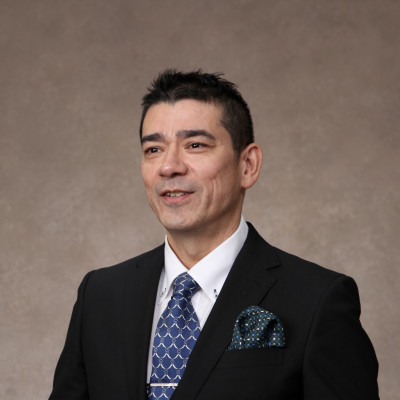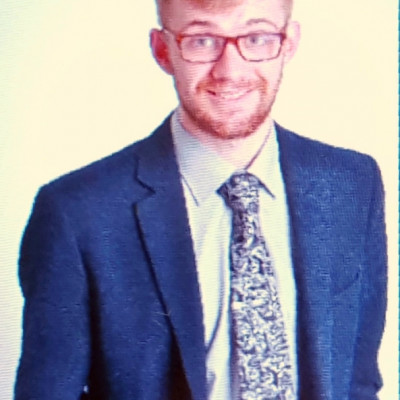Sessions / Location Name: Room 2
Virtual Location
Virtual: You cannot enter virtually via this page. Click on the titles of individual presentations or go to the Live Page
Formulaic expressions in written compositions of Japanese EFL students - The effects of noticing #2564
Although formulaic expressions have been estimated to account for one-third to one-half of language production (Conklin & Schmitt, 2008), they have not had an important focus in English language teaching. Noticing, identified as a necessary step in language acquisition (Schmidt, 1990), has also not been paid the attention it deserves. This presentation first introduces formulaic expressions and the role of noticing in second language acquisition. Then the speaker reports on a study, conducted over ten sessions, that investigated the effects of noticing formulaic expressions (as identified in the readings) on their production in ten short, written compositions. Results will be provided on the production of two-, three-, or longer word strings by comparing data for the experimental and control groups.
Developing a Successful Peer-Editing Program in the Writing Classroom #2571
The ability to plan, outline, and write an essay are invaluable to the language learner at the university level. Many writing programs also have students help each other develop their writing skills through the act of peer-editing. Unfortunately, not all writing programs invest the time and energy in training their students that is necessary to make peer-editing successful (Rollinson, 2005). This presentation will detail the implementation of a successful peer-editing system in a first-year writing course at a Japanese University. The presentation will begin by explaining the initial training the students undergo to prepare them for peer-editing. Then, the actual step-by-step process for conducting peer-editing will be clearly laid out. Finally, the student-to-student counseling sessions will be examined.
Using the Flipped Approach in English Speaking and Writing Courses Online at a Japanese University #2577
Due to Covid-19 pandemic, the use of technology for delivering classes and content has become increasingly important. The presenter will discuss the effects of technology-supported flipped learning for English language classes at a Japanese national university. In the study, questionnaires were completed by 149 students in the writing course and 193 students in the speaking course. Data analysis combined quantitative and qualitative methods to reveal how the flipped approach with a learning management system (LMS) supported students’ speaking and writing skills in an online learning environment. The findings suggest that LMS is a practical platform that allows improved communication with students and extended opportunities for learning. Finally, the presenter will give suggestions for using LMS in future hybrid classes.
Breaking a Mandatory Connection Between Japanese and English: shared narrative development as immersion #2584
Hiroshima's Historiographers
For the past four years, the Hiroshima’s Historiographers group has met weekly to read together texts related to San’yō Rai’s legacy. This workshop will share the results of those meetings, both in terms of pedagogical methodology and content. Once a household name in Japan, San’yō’s history of the Japanese Samurai houses became the first Japanese text to achieve the status of world literature, having been translated into several languages before The Tale of Genji. As a thread, Sany’yō’s legacy provides access to Anglophone academic journals and monographs, which in turn provide an ideal medium for Anglophone immersion. This immersion serves as an antidote to grammar translation heuristics, as the necessity to code switch etiolates due to the nature of the content.
Telling Stories: Whys and a Few Hows #2589
Stories can be a powerful tool, not only for learning but also for helping our learners, whatever their age, to relate to a foreign language and incorporate experiences they have had the language into their identity. The presenter will first explain why stories are so powerful: their strength in evoking emotion; their ability to connect storyteller and audience; and their crucial role in helping the learner to find and internalize patterns in foreign language experiences. He will then share, and solicit, ideas for incorporating the power of stories into writing and other lessons.
Project Based Learning (PBL) courses for non-English majors at university: Development and implementation #2594
Project Based Learning (PBL) has been shown to be effective to encourage student motivation and engagement (Savery, 2006). PBL asks learners to complete projects in the target language, providing the opportunity to experience the language in a natural and practical context, related to their educational and professional needs and goals (Willis, 1998). However, PBL development and implementation can be challenging. In this session, the presenter will offer a working definition of PBL, outline a project-based course used for non-English majors at university, and discuss how practical issues such as classroom and time management, grading, evaluation and syllabus design can be addressed. The presenter will also share classroom techniques and approaches that have been effective for classes.
Hiroshima's Messengers of Peace; On Practical Performative Identity and Student Motivation #2599
Hiroshima City has been working to establish itself as a messenger of peace within international cultural memory. One of the City’s expressed goals is to promote and share a message of peace with other cities around the world. In the 2020-2030 Hiroshima City Plan, they explain this goal as, “…Foster[ing] human resources who can put ideas and methods for building/maintaining peace out into the world” (p. 7). As such, Hiroshima City students are taught from a young age to perform a peace messenger identity for this purpose. In this presentation, performative identity is defined and its practical application in the ESL classroom is explored. Through encouraging the identity, “messenger of peace”, L2 student motivation and abilities improve.



